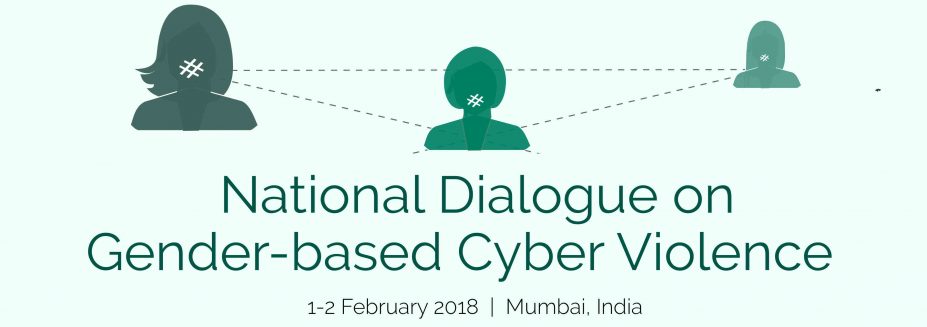
IT for Change and Advanced Centre for Women’s Studies, Tata Institute of Social Sciences (TISS), Mumbai, organized a National Dialogue on Gender-based Cyber Violence between 1-2 February 2018 in Mumbai, India. In the current context where public debate on the issue is marked by one-off reporting of a few cases in the media and short-lived sensationalism, the National Dialogue aimed at facilitating a systematic stocktaking of the phenomenon from a gender equality perspective.
In specific, it sought to:
1. Understand how social antecedents and identity shapes vulnerability to violence online and investigate how location affects gender-based cyber violence.
2. Evaluate the current legal framework through the constitutional framework of ‘equality, dignity and privacy’, and analyze the role of law in redressing gender-based cyber violence.
3. Capture the institutional responses to gender-based cyber violence.
4. Think aloud on how feminism can provide the language and means to fight gender-based cyber violence.
5. Identify agendas for further research, advocacy and action.
Towards this, it brought together scholars, practitioners, activists, along with students, from various disciplines, for two intense days of vibrant discussions and dialogue. For more details, see background note. To know more about the presenters at the conference see the participant bios.
Inaugurating the National Dialogue, R. Ramakumar, Dean, School of Development Studies, TISS, commended IT for Change and the Advanced Centre for Women’s Studies, TISS on the timeliness of this initiative. He reflected that though the Internet holds tremendous potential for amplifying the voice of discriminated-against groups, cyber violence has completely thwarted this. The offline structures of gender-based violence and discrimination have extended online.
Anita Gurumurthy, Executive Director, IT for Change and Asha Achuthan, Assistant Professor, Advanced Centre for Women’s Studies, TISS welcomed the participants and underscored the importance of feminist engagement with the digital.
This report is sequenced along the lines of the two-day program, and distills key ideas that emerged from each of the seven sessions of the National Dialogue. For each session, the main points made by speakers and the highlights of the open discussion have been summarized.
